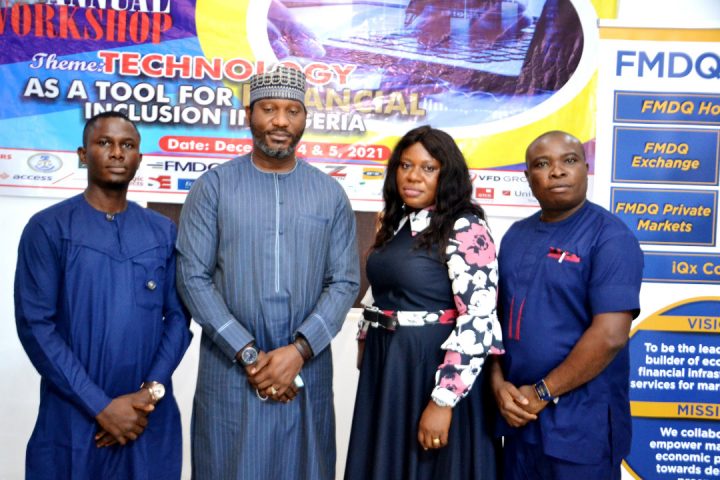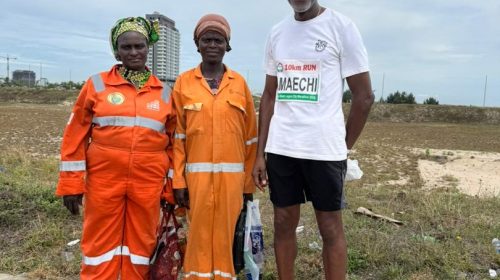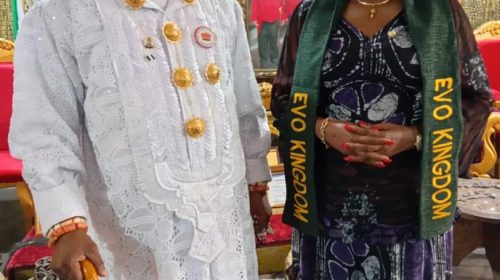Develop products for millennials to deepen capital market retail participation – FMDQ

As a way to increase the inclusion rate in the Nigerian capital market, stakeholders have canvassed for the introduction of “sachet” sized technology driven products that would drive increased retail investors patronage in the capital market particularly the younger generation.
The Managing Director and Chief Executive of FMDQ, Mr Bola Onadele, said this at the 2021 annual workshop of the Capital Market Correspondents Association of Nigeria (CAMCAN) with the theme: “Technology as a Tool for Financial Inclusion in Nigeria.”
Onadele noted that one way to increase retail investors in the market is to develop product specifically for the demographic targeted.
Onadele who was represented by Group Head, Research at FMDQ, Dr Vincent Nwani, said developing products in the capital market that would appeal to the unbanked and financially excluded would be a way to increase the level of financial inclusion in the country.
Noting that the country has only been able to achieve 15 per cent increase in inclusion rate over five years, he said Nigeria has the potential do more than Kenya which reduced its financially excluded populace by 60 per cent in three years.
“Currently 36 per cent of adult Nigerians are not financially included. Statistics in Kenya show that it is less than seven percent the same with South Africa. Kenya is as rural as Nigeria so what have we done to learn from them.
“Everyone knows the story of M-pesa and we even have a companies such as eTranzact that is as powerful as Mpesa but how do we unlock it. So going forward, we need to develop platforms and products that talk to economic and social characteristics of unbanked or excluded population.
“Where are they, who are they, how do they currently live their life and what do they like. Even for those of us in the investment world are we designing products to suit these people, are we reducing our products to the lowest denomination, the sachet sized model.
“Nigeria is driven by the informal sector with 65 per cent of GDP is in the informal sector, for us to catch these people, we need to go lower.
Kenya through the M-pesa which is the non-bank mobile money framework, was able to bring financial services even in the hinterlands with market women in the farms having access to payment systems, savings and investments.
“Here we are talking about capital market, a small aspect of financial inclusion.
“Insurance, pension are also aspects of financial inclusion that we should be exploring, if we are going to grow this market and improve through technology, meet them where they are.”
He further stressed the need to reach out to the financially excluded through technology saying “these are the people that need health, so we move into health tech, food tech or agric tech.
“We have stockbroking firms with minimum account opening of N5 million but then we also have those with minimum of zero balance and that is the sachet size model I am talking about.
“Even big men in Nigeria want to buy things that are very small and we have to replicate the sachet size model in the capital market. It has worked in everything it is applied to in this country so why don’t we in the capital market adopt it,” Onadele said.
He said market stakeholders needed to design investment products to align with financial inclusion strategies to get to the hinter land.
Onadele added that the exchange will in the first quarter of next year unveil new products tailored to meeting the investing needs of the masses.







Leave a Reply